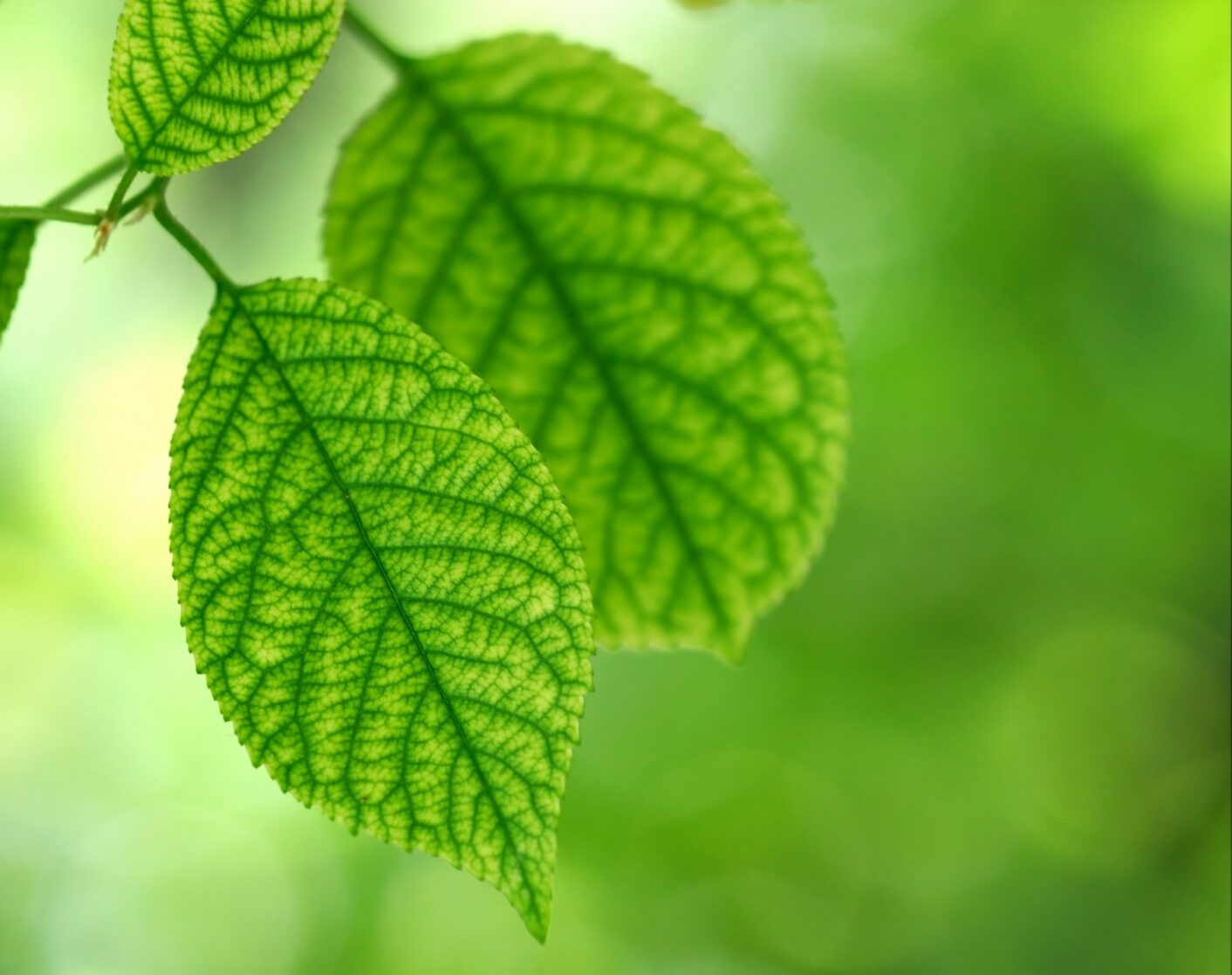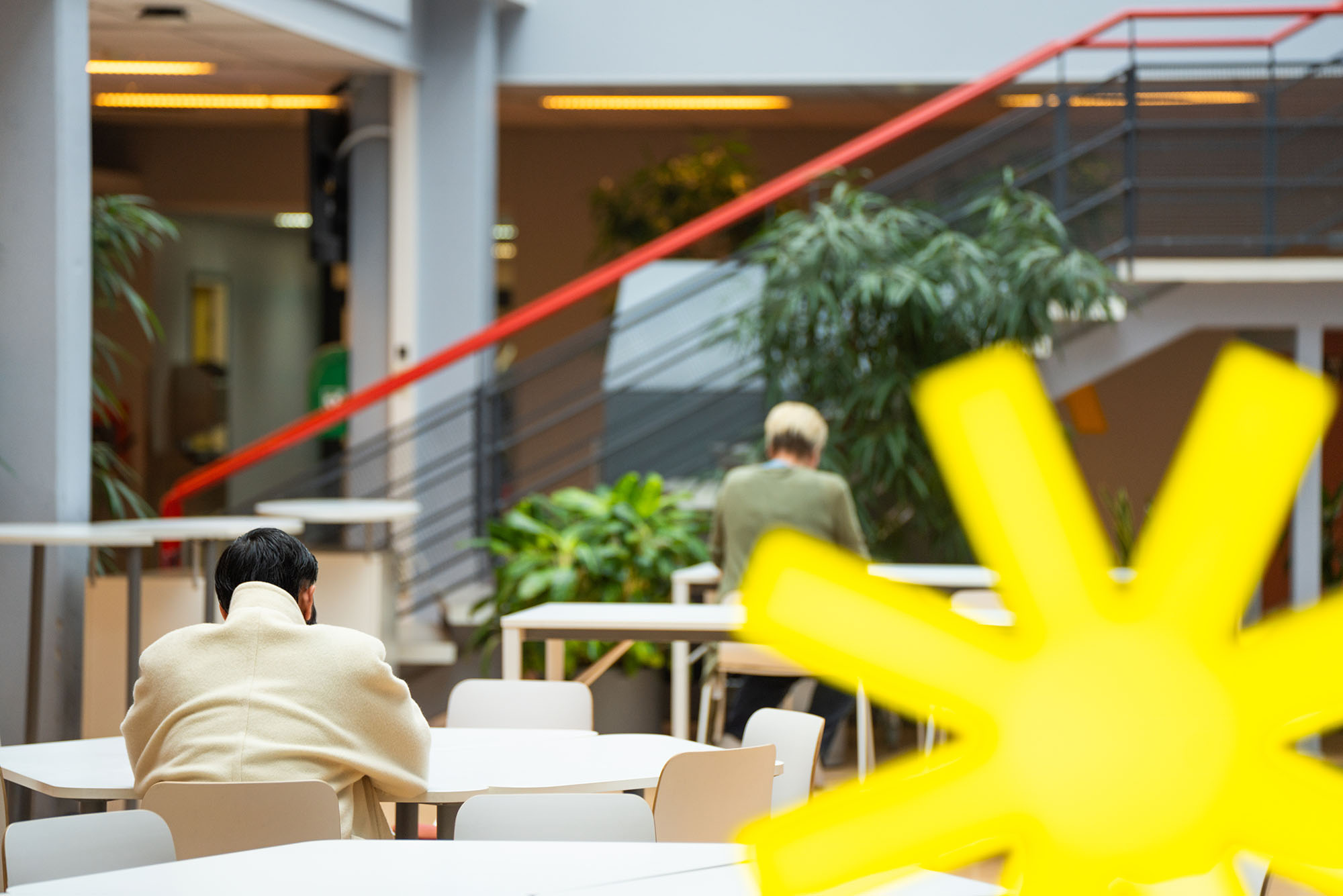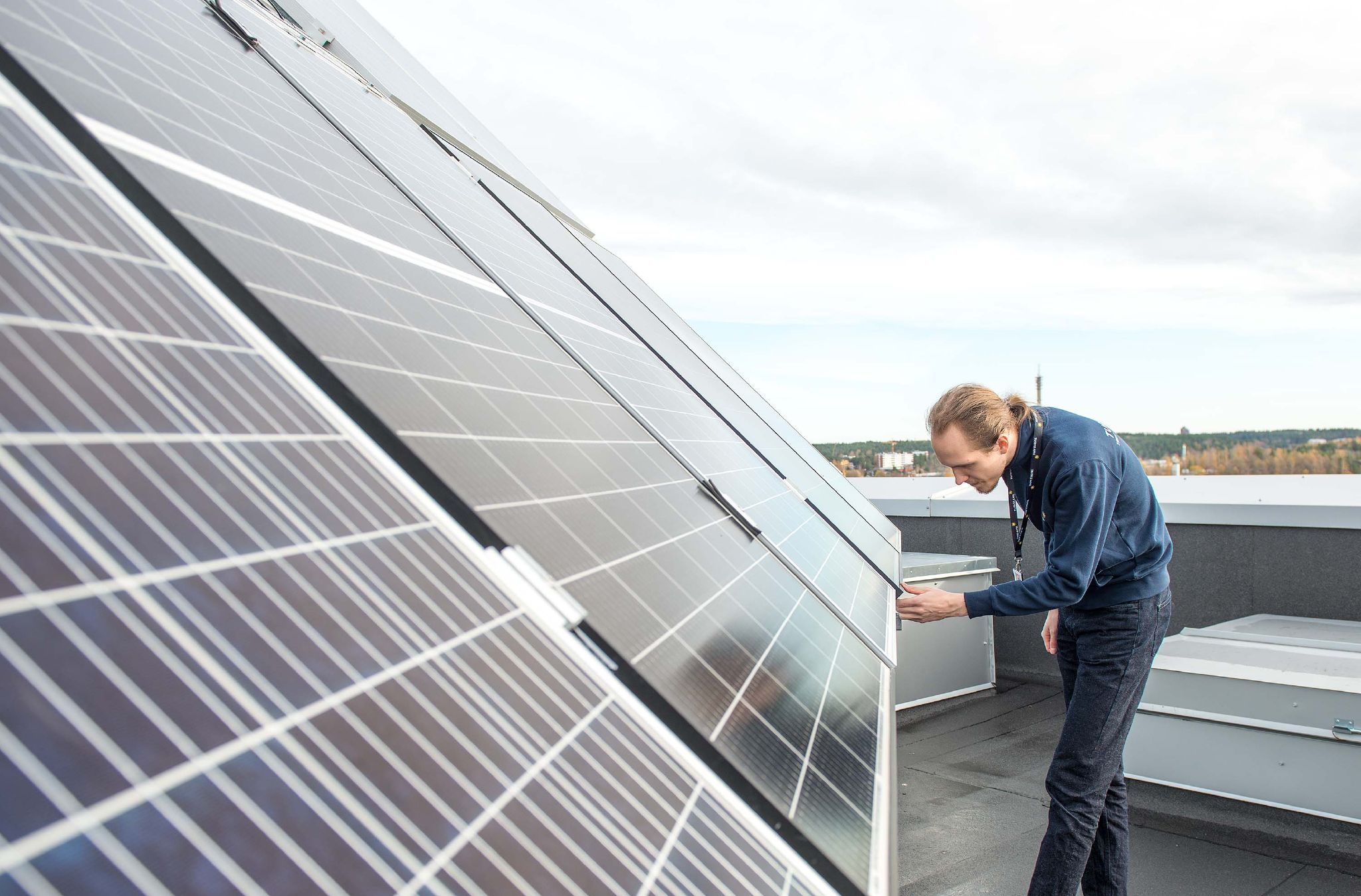Sustainable development and environmental responsibility
Our vision is that by 2030, Turku University of Applied Sciences will be a higher education institution that does not harm the environment, nature, or the climate, and actively works to promote sustainable development and environmental responsibility at the local, national, and international levels.

Our goal
Our sustainable development and environmental responsibility programme focuses on increasing handprint and reducing footprint. Our handprint is made up of three elements: education, RDI activities and management and staff competence.
Our education produces experts, with the knowledge, skills and motivation to promote sustainable development in working world and throughot society. Through our RDI activities, we develop solutions to sustainability challenges.
We act as economically, ecologically and socially responsible employers and employees. Our staff are familiar with and guided by important sustainable development policies related to their work. In terms of our footprint, we aim to reduce our emissions, increase carbon sinks and prevent nature loss.
At Turku University of Applied Sciences, our everyday work is guided by our own sustainability and responsibility programme. Sustainable development and environmental responsibility are at the core of our strategy.
Our commitments
- We are reducing our emissions through our procurement policy. Read more about our procurement policy for reducing carbon emissions (pdf)
- We are actively involved in the City of Turku’s climate plan and biodiversity programme, and committed to the city of Turku’s climate goals.
- We have signed Sitoumus2050 and we are a Fair Trade University.
- Our equality and equal opportunities plan includes tools to promote equality and to prevent discrimination.
- We are involved in the Baltic Sea Challenge. Our measures for years 2024–2028.
- We are a member of the Planetary Health Alliance (PHA).
Practical examples
- We calculate our carbon footprint annually using Arene’s carbon footprint calculator (available only in Finnish).
- We contributed to around 239 sustainable development RDI projects in 2024.
- More than 90% of the energy consumed by our campus buildings is produced from renewable energy sources.
- EduCity, the newest building on our campuses, has been awarded the prestigious LEED Platinum environmental certification.
Sustainable development in education
Our education prepares experts, with the knowledge, skills and motivation to promote sustainable development in the working world and in society. In addition to expertise related to their respective fields, all our graduates have at least basic knowledge of sustainable development and environmental responsibility.
Sustainable development and social responsibility are integrated into all our degree programmes. We promote accessibility in higher education so that everyone can strive and expertise regardless of their family background, gender, language, ethnic background, nationality, disability, place of residence or any other factor beyond the individual.
Read more about our education.
Sustainable development in RDI activities
Sustainable and environmentally responsible RDI activities provide solutions to sustainability challenges, promote sustainable development and reduce the impact of climate change. Sustainable RDI activities take into account the principles of ecological, economical, social and cultural sustainability and environmental responsibility. We work with students and in partnership with the higher education community, business and the public sector to promote awareness of sustainability challenges and solutions.
We use and develop evaluation criteria jointly with our partners to promote and increase the sustainability and environmetal responsibility of our RDI activities. All our RDI projects are evaluated according to sustainability criteria that assess the project’s
- ecological,
- economic,
- social and
- cultural sustainability.
Read more about our RDI activities.
Equality and equal opportunities
For us, social responsibility means a thriving and caring university community, where every member is unique and important. We promote the wellbeing of our community and invest in accessibility in education.
Our activities are guided by the Equal Turku UAS Plan, which is updated every two years. Our equality expert monitors and promotes the implementation of equality and accessibility plans, especially from a student perspective.
Read more about our equality work.
Principles to reduce and offset our carbon footprint
We aim to systematically reduce our carbon emissions. Since 2020, we have calculated our carbon footprint annually and monitor our progress.
However, it is impossible to eliminate emissions completely. Our aim is to be climate and nature positive in our overall impact, i.e. to operate in such a way that, despite the negative climate and nature impacts we cause, our operations can be verified as improving rather than damaging the environment, nature and the climate.
The measures we take include increasing carbon sinks, for example-, by acquiring land and developing its carbon sink potential. In addition, we prevent nature loss and increase biodiversity especially on our own land and through our project activities..
Together with our partners, we promote common nature goals, including the protection of the Baltic Sea. We increase our handprint through education and RDI activities and promote circular economy.
More information
Want to know more about our responsibility work? Contact our sustainable development coordinator for more information.
Read more
-
CasePress Release

1000 students from Turku University of Applied Sciences develop sustainable development solutions for organisations in Turku
In a new joint project between Turku University of Applied Sciences and the City of Turku, students are solving sustainability…
-
Press Release

Turku AMK develops more equal transport in the Turku region
The international project, led by Turku University of Applied Sciences, promotes more equitable and sustainable urban transport in Finland, Hungary,…
-
Press Release

Energy transition requires new skills: at the Turku University of Applied Sciences International Summer School, solar power is studied in a power plant, a factory and a solar park
Organised by Turku University of Applied Sciences, Raseko (Raisio Region Consortium of Schools) and Solar Finland, the international solar summer…

